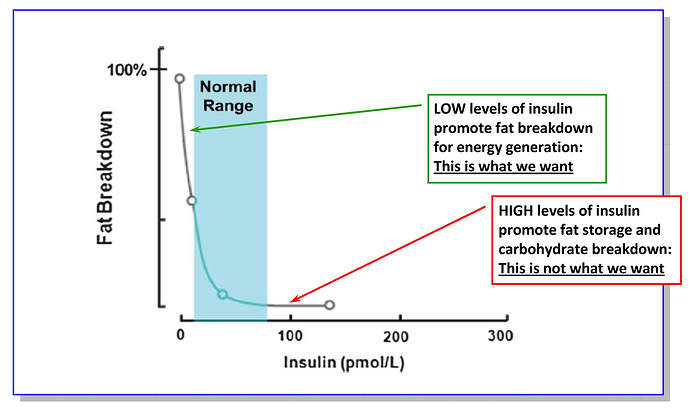I’m really trying not to focus on the scale too much because I know it’s not the most reliable gauge of how I’m doing, but I’d be lying if I said I wasn’t disappointed to not lose anything after a 40-hour fast. Maybe it’ll show up in a couple of days. 
I fasted for 40 hours and didn't lose a pound
It will, I completely agree. Patients has never been a virtue for me though! Hahaha
Actually, that has happened to me in the past as well. I remember once, I actually gained a couple of pounds on the first 2 days of an extended fast. It came off on days 4 and 5. So, imagine that, gaining weight on water, coffee and tea. But, nonetheless, I could tell that something was happening, as I was feeling better.
That would be super frustrating but I do understand there’s so much more to this than losing pounds. I’m happy I’m getting healthy and finally understanding food and how it works with my body (or against it), etc. I just still have so far to go and I’m so ready to be there. As much better as I feel after losing 125 lbs, I can only imagine how much better I’m going to feel after I lose another 140-150.
What happened to me is that the weight hung on for dear life with fasting…it was like it was fighting “oh hell, no, ain’t no way I’m gonna cooperate…!!”… And then whoosh…boom…I won. My last extended fast of seven days, I lost the most I ever lost before.
The % fat on your body is not the entire story for losing weight during a fast. It’s like de cluttering a room or refurbishing a kitchen. It takes moving furniture around, taking out old building material, bringing in new material, etc. it depends where in the “renovation-demolition-decoration” stage of the process that will drive amount of weightloss.
So, don’t get frustrated. Just hang in there while some shifting of furniture and demolition going on…it will eventually come out…big time! Keep calm and fast on!!
Thank you! That’s a great analogy. I will just keep calm and keto (and fast) on!
The point of fasting is not creating an energy deficit so you lose weight - that’s not really how our bodies work. If we impose an energy deficit, they usually squeeze out energy savings where we don’t want them.
The point of fasting is giving your body a rest from high insulin. That slowly trends you away from ever increasing insulin. That basal insulin level that you make when you don’t eat anything is the bottom line for whether you store or release energy.
Check out this chart across the bottom is your level of insulin and up the left is how much stored energy (fat) you can use.
If you don’t eat anything and your insulin drops to under 4 mU/L (about 24 pmol/L) then fasting will probably burn fat. 4-13 mU/L (24-78 pmol/L) is the normal range. If you are insulin resistant like me, then you don’t eat anything and your insulin drops to something like 20 mU/L (about 120 pmol/L) then you still aren’t in a fat burning range … BUT time at a lower level of insulin can reduce the amount of insulin you make to any challenge, so you can bend the needle in your direction. Do it often enough and soon you’ll be making 13 mU/L of insulin and now you are in the beginning of the fat releasing range.
So for me at least, fasting is never about the short term energy deficit … it’s always about reducing exposure to insulin so that I have a better chance to get into a fat burning range.
Thank you! I realized that the point of fasting was to reduce insulin, but I guess I assumed since I wasn’t eating I would have been burning stored fat. Is there any way to know what my insulin level is based on glucose level? My glucose level was at 64 mg/dL after fasting for about 20 hours.
Thank you! I realized that the point of fasting was to reduce insulin, but I guess I assumed since I wasn’t eating I would have been burning stored fat. Is there any way to know what my insulin level is based on glucose level? My glucose level was at 64 mg/dL after fasting for about 20 hours.
Not reliably. As I understand it, there are foods that produce higher insulin reactions that aren’t reflected in proportional glucose reaction. Things like shellfish apparently have a fairly significant insulin reaction without all the blood glucose. It’s also why diet soda doesn’t seem to have a tremendous effect on weight loss either. Jason Fung goes into more details in his book “The Obesity Code”
Agreed with @Protoman since the disparity between insulin and glucose is the main focus of Dr. Kraft’s insulin assays and the reason Type 2 Diabetes (T2D) is only diagnosed long after the insulin has begun to rise.
Unfortunately the only way to know your fasting insulin is to have it checked by blood work.
That being said, I would offer that if someone is overweight, there are certainly normal/underweight exceptions, that their fasting insulin is probably elevated.
In other words, from experiences and trials with Type 1 Diabetics, we know that because their insulin is extremely low or non-existent and they can’t gain weight and literally waste away and although other factors can affect how much weight we gain, the presence of higher levels of insulin is required to gain weight.

